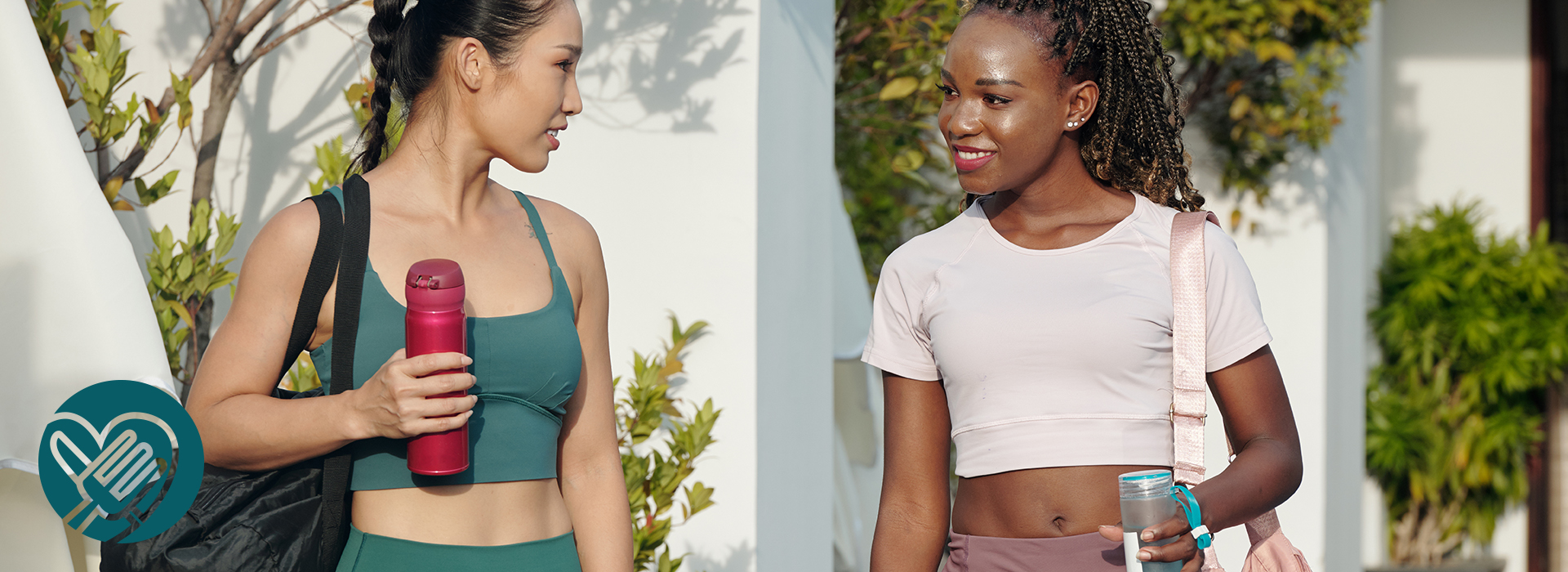
FUELLING THE CARDIOVASCULAR ENGINE: NUTRITION AND HYDRATION ESSENTIALS FOR OPTIMAL EXERCISE PERFORMANCE
Embarking on a cardiovascular exercise journey, whether it’s running, cycling, or engaging in high-intensity interval training, requires more than just determination and a good pair of shoes. Nutrition and hydration play pivotal roles in supporting your body’s energy needs, enhancing performance, and promoting overall well-being during cardiovascular exercise. In this article, we explore the key components of an effective nutrition and hydration strategy for maximising the benefits during workouts.
The Role of Nutrition
Pre-Exercise Fuelling:
Before lacing up your trainers, it’s crucial to provide your body with the right fuel. A balanced pre-exercise meal or snack should include carbohydrates, which serve as the primary energy source for endurance activities. Opt for easily digestible options such as whole grain toast with peanut butter, a banana, or yoghourt with berries. Consuming this meal about 1-2 hours before your workout ensures a steady release of energy.
Carbohydrates – ‘The Energy Powerhouse’:
Carbohydrates are the body’s preferred source of energy during cardiovascular exercise. Consuming complex carbohydrates, such as whole grains, fruits, and vegetables, helps maintain blood sugar levels and sustains energy throughout your workout. Including these foods in your regular diet supports glycogen stores in muscles, preventing premature fatigue during prolonged cardio sessions.
Protein for Muscle Support:
While carbohydrates take centre stage for energy, protein is crucial for muscle support and repair. Including a moderate amount of protein in your meals, both before and after exercise, helps prevent muscle breakdown and supports recovery. Sources of lean protein, such as chicken, fish, beans, or tofu, contribute to the overall balance of your pre- and post-workout nutrition.
Hydration Before Exercise:
Hydration is a core element of optimal exercise performance. Dehydration can lead to fatigue, cramping, and decreased exercise efficiency. Pre- hydrate by drinking water throughout the day and consume additional fluids about 2 hours before your workout. While the exact amount will vary aim for around 16-20 ounces (473-590 ml) of water as a general guideline.
During Exercise Hydration
Continuous Fluid Intake:
Maintaining hydration during cardiovascular exercise is crucial for sustaining performance and preventing dehydration. Depending on the intensity and duration of your workout, aim to drink 7-10 ounces (207-296 ml) of water every 10-20 minutes. Adjust this based on factors like temperature, humidity, and individual sweat rates.
Electrolytes for Longer Sessions:
During extended cardio sessions, especially in hot and humid conditions, you may lose essential electrolytes through sweat. Replacing these electrolytes helps maintain proper muscle function and hydration balance. Consider sports drinks or natural alternatives like coconut water to replenish electrolytes lost during prolonged workouts.
Post-Exercise Nutrition and Hydration
Replenishing Glycogen Stores:
After a cardiovascular workout, your body is primed to replenish glycogen stores in muscles. Consuming a post-exercise meal rich in carbohydrates and moderate in protein helps kick-start the recovery process. A ratio of 3:1 or 4:1 carbohydrates to protein is often recommended for optimal recovery.
Protein for Muscle Repair:
Post-exercise protein intake is essential for muscle repair and growth. Including a protein source in your post-workout meal or snack, such as a protein shake, Greek yoghourt, or a chicken and vegetable stir-fry, supports recovery and helps prepare your muscles for the next session.
Hydration After Exercise:
Re-hydration is a critical component of the post-exercise recovery process. Aim to drink at least 16-24 ounces (473-710 ml) of fluid for every pound (0.45 kg) lost during exercise. This helps restore fluid balance and supports overall recovery.
Additional Considerations
Individualised Approach:
The ideal nutrition and hydration plan for cardiovascular exercise may vary from person to person. Factors such as age, weight, fitness level, and personal preferences should be considered when tailoring your approach. Experimenting with different foods and hydration strategies allows you to find what works best for your unique needs.
Listening to Your Body:
Pay attention to your body’s signals during exercise. Thirst, urine colour, and energy levels are indicators of hydration status. Adjust your fluid intake and nutrition plan based on these cues to optimise your cardiovascular performance.
Conclusion
Achieving optimal cardiovascular exercise performance goes beyond the physical effort you put into your workout; it’s about providing your body with the right fuel and staying properly hydrated. A well-balanced combination of carbohydrates, protein, and fluids before, during, and after exercise supports energy levels, muscle function, and recovery. By incorporating these nutrition and hydration strategies into your routine, you can enhance your cardiovascular exercise experience, improve endurance, and promote overall well-being on your fitness journey.
